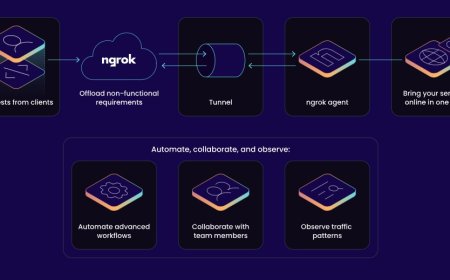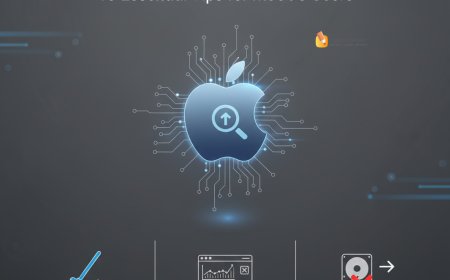Quantum Computing: The Future of Technology in 2025
Explore the world of quantum computing and its potential to revolutionize technology in 2025. Learn about quantum computers, their applications, and how they are set to transform industries globally.

The tech world is on the brink of a major revolution with the rise of quantum computing. Unlike traditional computers that process data in binary (0s and 1s), quantum computers harness the power of quantum mechanics to solve problems that were once thought impossible. As businesses and researchers explore the potential of quantum technology, industries such as healthcare, cybersecurity, and finance are gearing up for massive transformations.
In this blog, we’ll explain what quantum computing is, how it works, and its implications for the future of technology, particularly in 2024.
What is Quantum Computing?
Quantum computing is an advanced form of computing that uses quantum bits (qubits) instead of classical bits to process information. Qubits can exist in multiple states simultaneously, thanks to principles like superposition and entanglement.
While traditional computers solve problems sequentially, quantum computers can perform complex calculations much faster by analyzing multiple possibilities at once.
Key Principles of Quantum Computing
-
Superposition: Qubits can represent both 0 and 1 simultaneously, allowing quantum computers to process multiple inputs at the same time.
-
Entanglement: Qubits become interconnected, enabling instant communication and synchronization, even across long distances.
-
Quantum Interference: Quantum systems use interference to amplify correct solutions while canceling out incorrect ones.
Applications of Quantum Computing
Quantum computing has the potential to transform numerous industries by solving problems that are beyond the capabilities of classical computers:
1. Healthcare
-
Drug Discovery: Simulating molecular structures to discover new drugs faster and more accurately.
-
Medical Diagnosis: Enhancing AI tools for early detection of diseases.
2. Cybersecurity
-
Encryption and Cryptography: Quantum computers can break current encryption methods, forcing the development of new quantum-proof security protocols.
-
Secure Communication: Quantum key distribution ensures completely secure data transmission.
3. Financial Services
-
Risk Analysis: Quantum algorithms optimize financial portfolios and assess risks more efficiently.
-
Fraud Detection: Advanced models identify anomalies and prevent financial fraud.
4. Logistics and Manufacturing
-
Supply Chain Optimization: Reducing inefficiencies in global supply chains using quantum simulations.
-
Materials Science: Designing stronger, more sustainable materials at the atomic level.
5. Artificial Intelligence (AI)
-
Improved Machine Learning: Quantum computing accelerates the training of machine learning models, leading to better AI predictions and outcomes.
Challenges of Quantum Computing
Despite its potential, quantum computing faces significant hurdles:
-
Error Rates: Qubits are sensitive to interference, leading to errors in calculations.
-
Scalability: Building large-scale quantum computers remains a challenge.
-
High Costs: Quantum technology is expensive and not yet accessible for widespread use.
-
Complex Infrastructure: Quantum computers require extremely low temperatures to operate, adding to infrastructure demands.
The Future of Quantum Computing in 2024 and Beyond
As we look to 2024, quantum computing is gaining momentum globally. Tech giants like Google, IBM, and Microsoft are making breakthroughs in building quantum processors, while startups are innovating with quantum algorithms and applications. In Kenya, researchers and institutions are beginning to explore how quantum computing can solve local challenges in healthcare, agriculture, and finance.
The future will see quantum computers becoming more reliable, accessible, and integrated into mainstream industries, unlocking possibilities we’ve only imagined.
Conclusion
Quantum computing represents a monumental leap in technology, offering solutions to problems previously unsolvable with classical computing methods. With applications ranging from drug discovery to cybersecurity and AI, the impact of quantum technology will be felt across industries in 2024 and beyond.
As Kenya and the world embrace this cutting-edge innovation, now is the time to stay informed and prepared for the quantum revolution.
What's Your Reaction?





















































